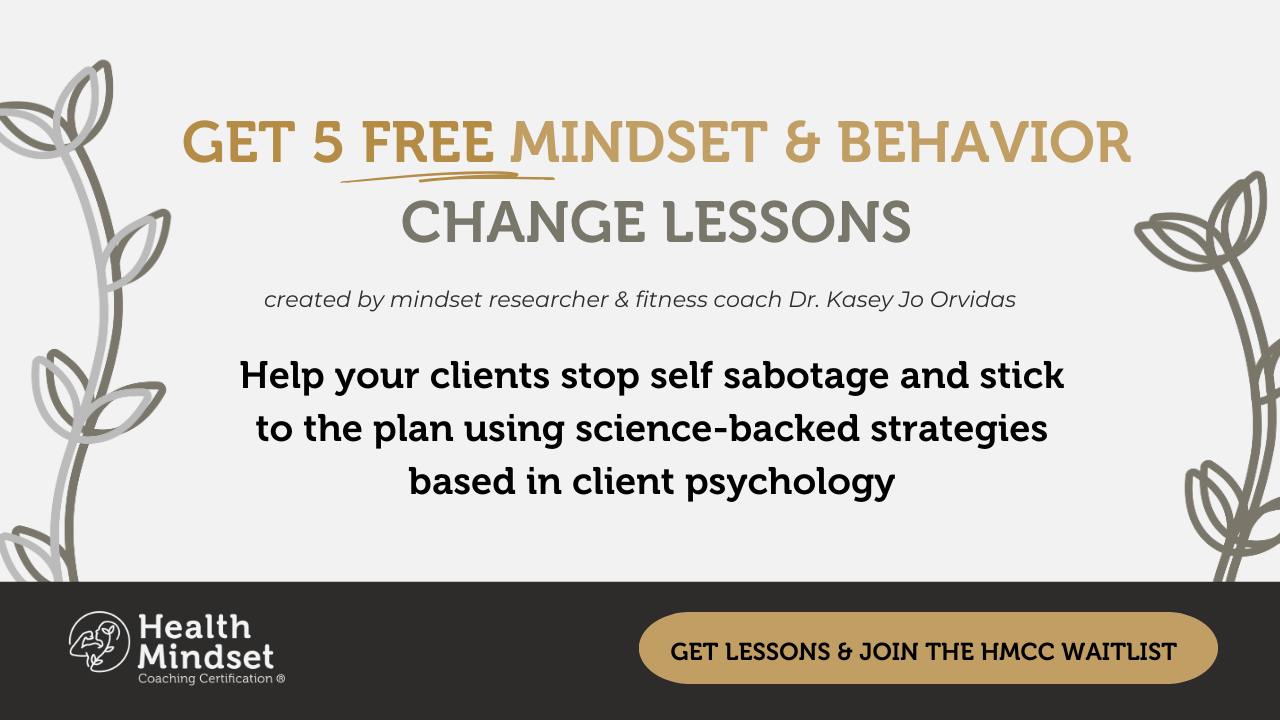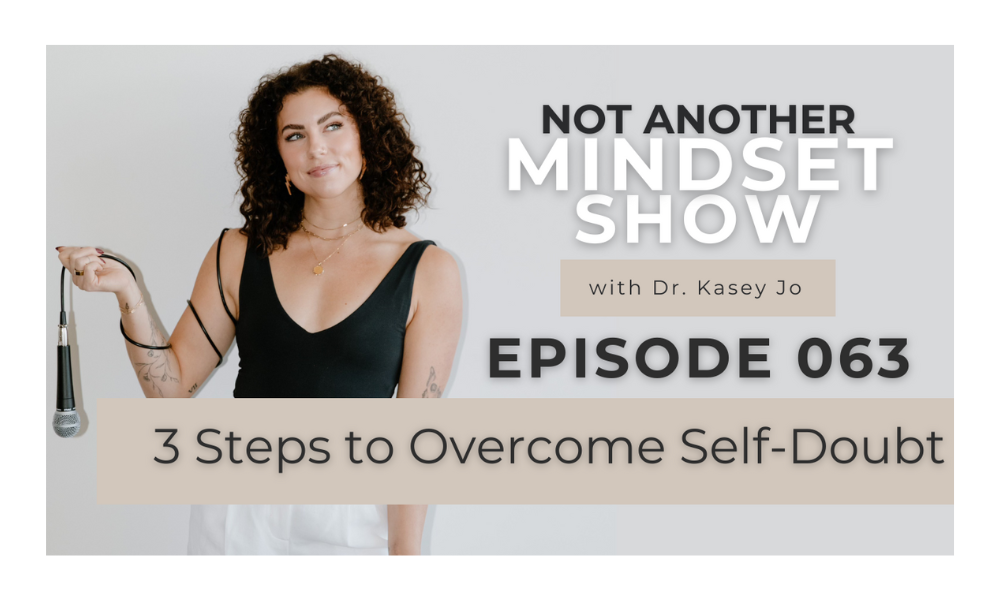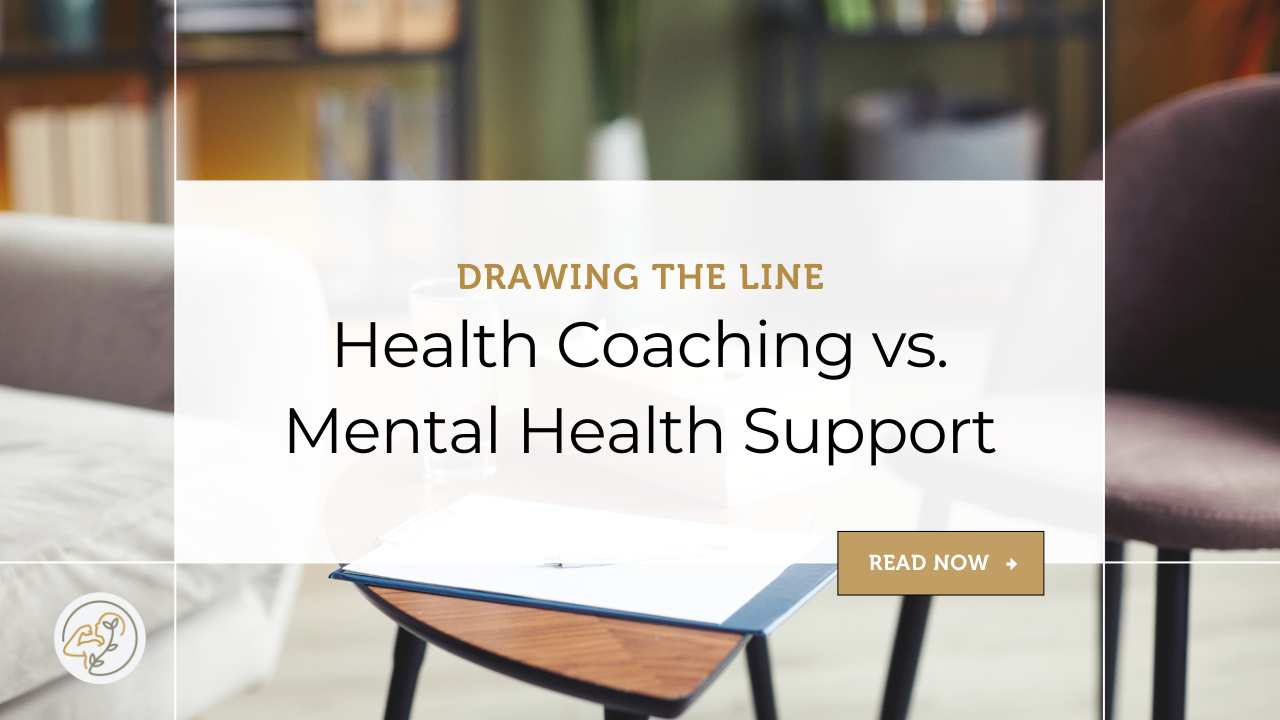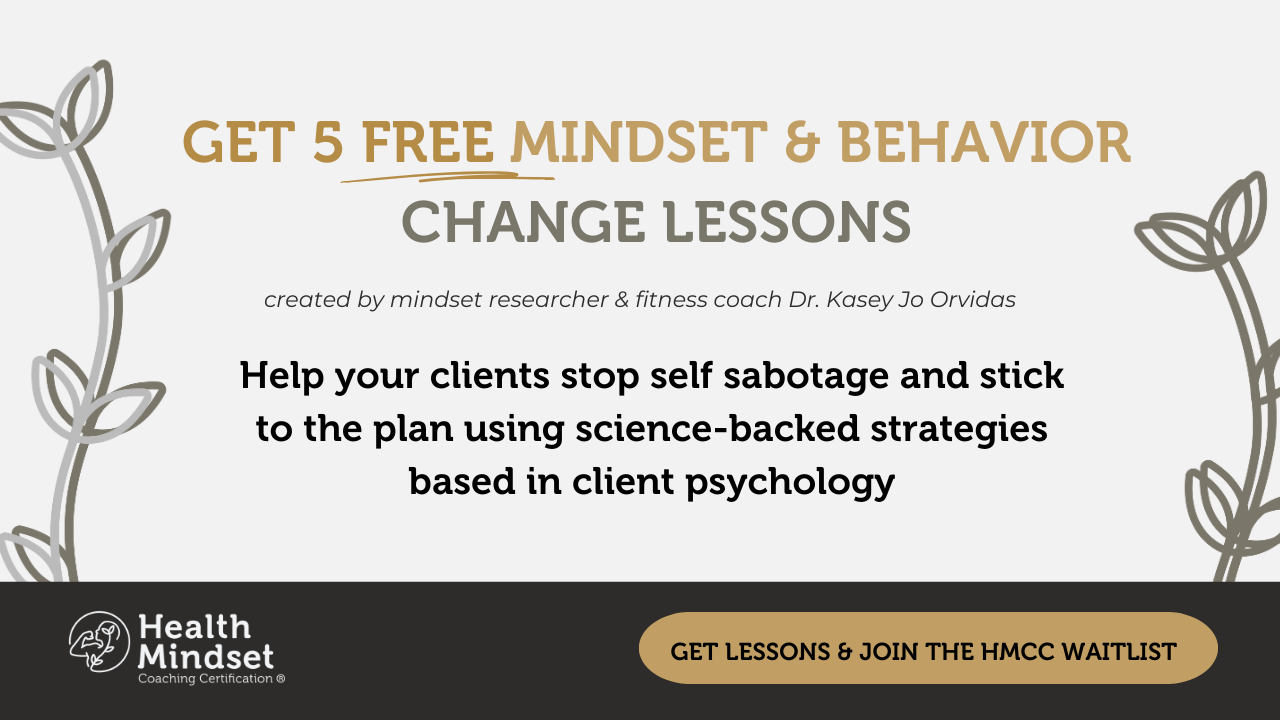Overcoming Self-Doubt as a Coach: Increase Confidence in Your Coaching and Your Business
Sep 26, 2025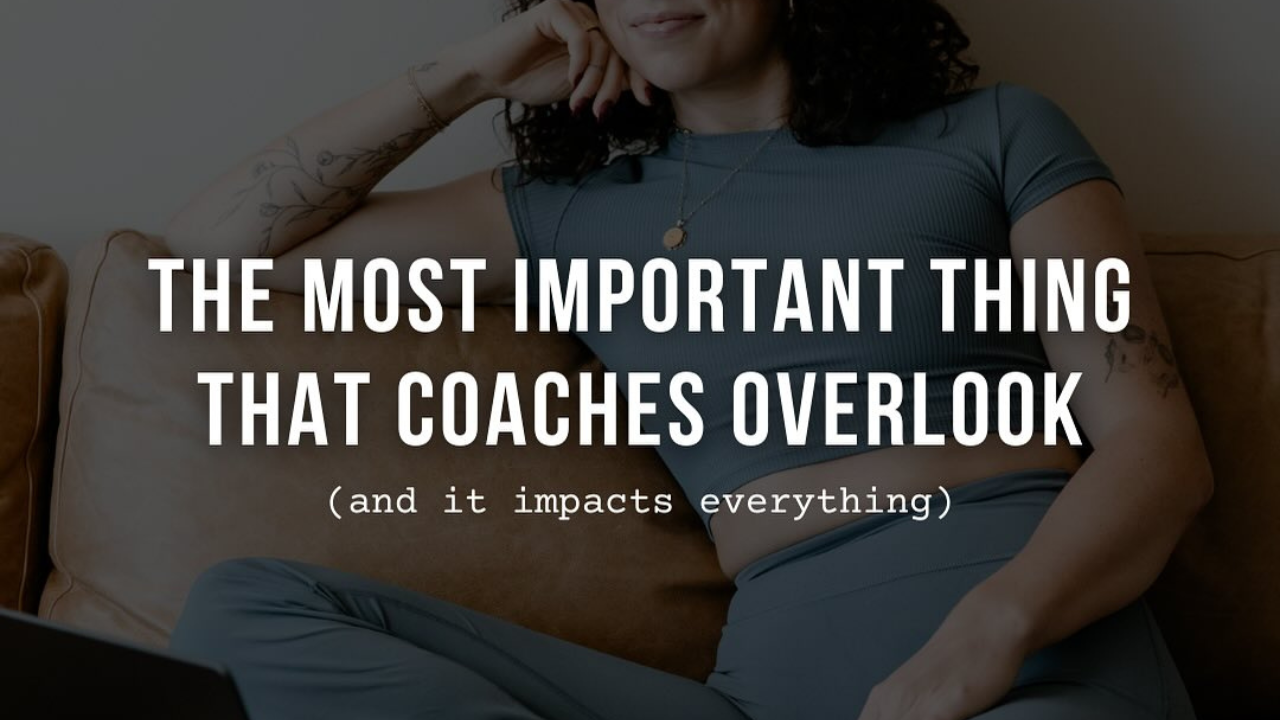
Self-doubt is something almost every coach experiences at some point.
Whether you're brand new or have been in the industry for years, that little voice that whispers Who am I to coach others? or I don't know enough yet, can hold you back from showing up fully for your clients and your business.
The truth? Self-doubt doesn't have to control your coaching journey.
With the right mindset shifts, evidence-based strategies, and practical tools, you can learn to recognize self-doubt for what it is — a normal part of growth — and move forward with confidence.
In this article, I explore why fitness coaches struggle with self-doubt, how it affects your business, and the research-backed steps you can take to build confidence and belief in yourself.
Table of Contents
Why Coaches Struggle with Self-Doubt
Why Believing in Yourself Matters as a Coach
How Self-Doubt Impacts Your Coaching Business
How to Overcome Self-Doubt
1: Acknowledge That Self-Doubt Is Normal
2: Reconnect With Your Coaching "Why"
3: Use Evidence, Not Feelings
4: Practice Self-Compassion
5: Invest in Skill Development
6: Reframe Selling as Serving
7: Surround Yourself With Support
8: Recognize Your Limitations
Self-Confidence Grows Through Action
Increase Your Confidence as a Coach
Connect with us!

Why Coaches Struggle with Self-Doubt
You can likely recognize self-doubt in your clients, but it may be harder to spot it in yourself
Self-doubt often shows up as:
- Worrying that you don't know enough to help your clients
- Comparing yourself to more experienced coaches
- Feeling uncomfortable charging for your services
- Hesitating to share your message online
- Questioning your results when clients struggle
You are experiencing some or all of this because coaching is personal.
You aren't just delivering workouts or nutrition guidance. You're sharing your knowledge, your personality, and your leadership.
That vulnerability naturally brings insecurities to the surface.
But the presence of self-doubt doesn't mean you are not cut out to be a coach. In fact, many of the most successful coaches have learned how to work with their doubts instead of against them.
Our brains are wired to protect us from potential failure, embarrassment, or rejection, so they sometimes create false alarms that exaggerate risks.
Even highly accomplished people often underestimate their abilities and overestimate the abilities of others. Coaches are especially vulnerable because you're in a role that requires confidence and leadership — two qualities that self-doubt undermines.
The good news? Belief in yourself isn't fixed.
As clients can train their bodies, you can train your mind to recognize and overcome self-doubt.
I teach coaches to help their clients ditch fixed mindset thinking and embrace a growth mindset. You can apply everything I teach to yourself as well!
I even have five free primer lessons if you want to start immediately.
Why Believing in Yourself Matters as a Coach
It's hard to sell something you don't believe in. And if you don't believe in YOURSELF as a coach, where does that leave you?
Many coaches struggling with self-doubt find that it doesn't just affect their confidence; it directly impacts their ability to grow their business.
Potential clients will sense that uncertainty if you second-guess your skills, question your value, or hesitate to promote your services.
Overcoming self-doubt means asking yourself what you need to feel more confident in yourself and your coaching.
The answer to that question is often the key to unlocking both personal and professional growth.
When you start to believe in yourself, selling your services feels less like asking for money, and more like confidently offering support you know can change lives.
Your energy shifts, your messaging becomes stronger, and your clients trust you more because you trust yourself.
How Self-Doubt Impacts Your Coaching Business
Left unchecked, self-doubt doesn't just affect your confidence. It can slow your business growth.
Common things I've seen with coaches who don't have enough self-confidence include:
- Underpricing services because they don't believe they are "worth it"
- Over-delivering and burning out to prove their value
- Avoiding marketing or sales because it feels uncomfortable to promote themselves
- Hesitating in client sessions, which makes them seem less authoritative
- Constant comparison to other coaches, which erodes their unique voice
Your business thrives when you believe in what you offer.
Selling your services, showing up online, and building client trust all start with the confidence you have in yourself as a coach.
You will never find the success you're looking for if you keep letting fear get in your way.
How to Overcome Self-Doubt
There are several things you can do if you are interested in overcoming self-doubt and increasing your self-confidence.
You may pick up on the fact that some of these strategies are pretty similar to how you would approach a client with a history of self-sabotage or limiting beliefs about their ability to succeed.
1: Acknowledge That Self-Doubt Is Normal
The first step to overcoming self-doubt is accepting that it's not a sign of weakness or incompetence. Everyone experiences it.
When you notice that initial thought creeping in, try reframing it as evidence that you care.
You wouldn't feel nervous about whether you are capable if you didn't want to deliver real value. Recognizing that self-doubt is part of the process makes it feel less threatening.
2: Reconnect With Your Coaching "Why"
You know how you tell your clients that they should reconnect with their "why" when they are struggling to stay consistent? Yeah. Right back at ya!
Confidence grows when your work aligns with your deeper values.
Ask yourself:
- Why did I become a coach in the first place?
- What do I believe about the power of coaching?
- What do I want my clients to gain from working with me?
By shifting your focus from your fears to your mission, you reframe coaching from What if I'm not good enough? to How can I help this person succeed?
That perspective shift makes it easier to show up confidently.
3: Use Evidence, Not Feelings
One of the things I teach in the Health Mindset Coaching Certification is that if you have a client facing imposter syndrome or negative thoughts, you should have them ask themselves what evidence they have for and against those thoughts.
Feelings of self-doubt are often disconnected from facts.
So, let's look at the evidence rather than making assumptions. Ask yourself:
- What results have my clients achieved?
- What certifications, training, or education have I completed?
- What positive feedback have I received?
Collect testimonials, client messages, and your own wins in a "confidence file" that you revisit whenever self-doubt tries to tell you that you are not capable.
You can also use some cognitive reframing to replace negative thoughts.
Maybe you don't have a ton of experience, but you probably have some unique skills and knowledge you can use to support your clients.
Your clients choose to work with YOU because you have something they are looking for. Remind yourself what that is and lean into it.
4: Practice Self-Compassion
Research by Dr. Kristin Neff shows that self-compassion helps people stay resilient and motivated.
Instead of beating yourself up for not being perfect, try offering yourself the same kindness you'd give a client and remind yourself that everyone starts somewhere.
You are learning and improving with each experience, which is OKAY!
You don't have to know everything to be able to help someone improve their life. Most people start before they are truly ready and learn along the way.
And remember that one imperfect session doesn't erase the value you bring to your clients. Not every recommendation you make will be perfect, and not every client will achieve their goals, but that doesn't make you a failure. It makes you human.
And also, there are certain things that are outside of your control, and you need to remind yourself of that, too.
Self-compassion doesn't mean lowering standards. It means creating a supportive inner environment that helps you keep moving forward.
5: Invest in Skill Development
Sometimes self-doubt signals that you do need more tools in your toolbox.
That doesn't mean you're inadequate or that you shouldn't be coaching. It simply means you're ready to grow.
Areas to consider investing in:
- Coaching psychology and behavior change strategies, like what I teach inside the Health Mindset Coaching Certification.
- Communication skills, like motivational interviewing.
- Advanced nutrition or training education.
- Business and marketing training for fitness coaches, such as my Growth Collective.
When you build skills, you also build confidence, and you know you're prepared to handle challenges because you've equipped yourself with the right knowledge and strategies.
6: Reframe Selling as Serving
One of the most significant ways self-doubt shows up for coaches is around sales. It's hard to sell something you don't fully believe in.
But the truth is, if you believe in the power of coaching, selling isn't about taking. It's about serving.
When you offer your program, you aren't asking people for money. You're giving them the opportunity to change their lives.
Reframing sales this way helps reduce fear and builds confidence.
7: Surround Yourself With Support
Coaching can feel isolating if you try to do everything on your own. Building a community of peers and mentors gives you perspective, encouragement, and accountability.
Options include:
- Networking with other fitness coaches
- Joining professional development programs or masterminds
- Seeking mentorship from experienced coaches
I'm incredibly proud of the HMCC Alumni group because it's a caring and supportive place where coaches can turn to each other with their struggles as well as celebrate their wins.
It becomes easier to work through your own self-doubt when you see that even the most successful people occasionally deal with self-doubt.
8: Recognize Your Limitations
Self-doubt sometimes comes from worrying you'll be asked to do more than you're qualified for, which is why it's critical to understand your scope of practice.
As a coach, you can teach behavior change strategies, provide support and accountability, and help clients reframe mindset blocks.
But when clients disclose issues like trauma, disordered eating, or mental health concerns that interfere with daily life, it's time to refer out to a therapist.
Knowing this boundary actually helps build confidence because you realize that you don't need to have all the answers, just the right ones for YOUR role.
There's a fine line between fitness coaching and mental health counseling, especially if you, like the HMCC grads, use psychology tactics in your coaching, so you have to know where to draw that line and refer someone out.
I actually have a podcast episode and a blog post on this exact topic! Check them out if your self-doubt is coming from trying to be and do too much for your clients.
Self-Confidence Grows Through Action
Have you ever heard the phrase that confidence comes from competence?
The ultimate truth about overcoming self-doubt as a coach is that confidence doesn't come first. It grows through ACTION.
Each time you post on social media, host a client call, or share your perspective, you build evidence that you can do this.
Waiting until you feel ready will keep you stuck. Taking action, even imperfectly, is what creates confidence.
Overcoming self-doubt isn't about eliminating fear or never questioning yourself. It's about learning how to move forward even when doubts arise.
Your clients don't need a perfect coach. They need a committed, compassionate, and growth-oriented coach, which is exactly what you're becoming.
Increase Your Confidence as a Coach
Self-doubt doesn't disappear overnight, but you can transform it into growth with the right tools.
That's exactly why I created the Health Mindset Coaching Certification! I wanted to help coaches like you build the confidence and skills to support your clients at the highest level.
For me, this looks like teaching you how to use psychology to improve your clients' mindsets to help them put an end to self-sabotage and achieve lasting behavior change.
The Health Mindset Coaching Certification is the best way to help your clients improve their mindset and create lasting behavior change. This 14-week program for health and fitness professionals equips you with the skills you need to help your clients end self-sabotage, break through mindset barriers, and make behavior changes for good.
You'll learn research-backed methods from Cognitive Behavioral Therapy and other psychological tools that will help your clients embrace a growth mindset and create lasting behavior change.
If you want to improve your coaching skills and feel confident guiding real, lasting behavior change, start with my 5 FREE Mindset and Behavior Change Lessons.
These bite-sized trainings are packed with tools you can start using right away to help you retain clients longer, confidently help clients work through mindset barriers, and make your coaching more profitable.
You can also listen to my podcast episode on three ways you can overcome self-doubt here!
Check out my original post here!
Connect with us!
Email: [email protected]

